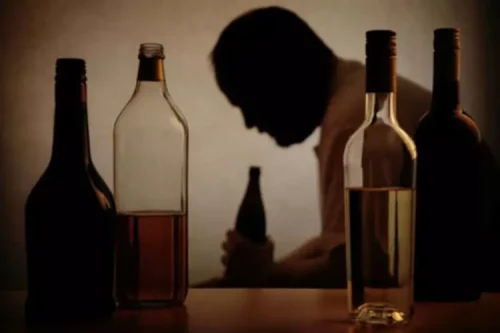
The best way to quit benzodiazepines is to avoid withdrawal by asking your doctor to taper down your dose. Tapering means taking progressively smaller doses over the course of a few weeks or months. In some scenarios, individuals may encounter worsen symptoms, known as ‘rebound’ effects, where anxiety or insomnia may intensify following cessation. In severe cases, benzodiazepine withdrawal can lead to seizures, a medical emergency that requires immediate attention. Substance abuse During benzodiazepine withdrawal, individuals may experience memory and concentration issues. They may find it difficult to focus on tasks, recall information, or multitask.
- When you stop taking benzodiazepines, the brain experiences a “rebound” effect, where symptoms like anxiety and insomnia return more intensely than before.
- Benzodiazepine withdrawal can be managed with a gradual dose reduction, which will cause milder symptoms that come and go in waves.
- Essentially, benzo withdrawal occurs because your brain has become accustomed to the presence of the medication to maintain balance.
- We can help you find the treatment you need to reclaim control in your life once and for all.
- A healthcare professional should supervise benzo withdrawal to help monitor and manage the symptoms.
- When you reduce or stop your dose, this delicate balance is disrupted.
Management
Benzo withdrawals can be severe, and life threatening complications can occur. A healthcare professional should supervise benzo withdrawal to help monitor and manage the symptoms. Benzodiazepine, or benzo, withdrawal happens when a person suddenly stops taking benzodiazepine drugs, which doctors do not recommend. The withdrawal symptoms, which vary in severity, typically begin within 24 hours and may last from a few days to a few months. While there is no FDA-approved medication to treat benzodiazepine withdrawal, your doctor may also prescribe other medications to help you manage withdrawal symptoms.

How to Overcome Fear of Rejection in Recovery
Detoxing and going through withdrawals from any substance of abuse can be a challenging and uncomfortable experience. In fact, the challenges faced during the withdrawal process are one of the many reasons why it is recommended that it be done under the care and supervision of trained medical professionals. A therapist or other mental health professional can offer support with navigating these effects and helping improve your overall quality of life during the withdrawal period. In addition to the immediate health risk, benzodiazepine withdrawal can seriously affect your quality of life. Experiencing rebound symptoms means the symptoms you had before taking benzodiazepines come back even stronger than before. Other therapies, including counseling and cognitive behavioral therapy (CBT), may be helpful for people looking to manage symptoms without relying on other drugs.
Benefits of Acceptance and Commitment Therapy (ACT) For Your Mental Health

Quick responses to complications can significantly improve safety outcomes. The symptoms of benzodiazepine withdrawal can vary depending on several factors, including the individual’s history of benzodiazepine use, the dose and duration of use, and the method of discontinuation. Some common symptoms of benzodiazepine withdrawal include anxiety, insomnia, irritability, tremors, sweating, nausea, and seizures.
Typically, withdrawal symptoms benzodiazepine withdrawal begin within 24 hours after the last dose. Essentially, benzo withdrawal occurs because your brain has become accustomed to the presence of the medication to maintain balance. When you reduce or stop your dose, this delicate balance is disrupted. If you or a loved one are struggling with prescription drug dependence, getting help early can make all the difference.

This is because benzodiazepines work by enhancing the effects of a neurotransmitter called GABA, which helps to calm the brain and reduce anxiety. To make matters worse, many benzo addicts started as a doctor’s prescription for sleeping issues and anxiety disorders. Benzodiazepines pose a greater risk of overdose, especially those combing the drug with other opiate prescriptions. Let’s look at several key areas connected to benzodiazepines, including the signs and symptoms of withdrawing from the drug. Anxiety includes worrying, intrusive thoughts, looping thoughts, insomnia, fear, dread, panic, and full-blown terror.
- A notable study involving 139 adult participants revealed that 45.2% from an intervention group were able to successfully discontinue benzodiazepine use, compared to just 9.1% in the control group.
- Benzodiazepines, commonly prescribed for anxiety and sleep disorders, pose a significant risk of addiction and dependence when used over time.
- The higher dose may help ease your symptoms, but it can also increase your risk of overdose and severe withdrawal symptoms.
- Symptoms will be milder than acute withdrawal and they can disappear for weeks at a time.
- Over-the-counter pain meds can be used (sparingly as they upset the gut microbiome and cause the liver to work harder at detoxification).
- This structured environment not only mitigates the risk of relapse but also sets the stage for ongoing psychological support through therapy following the detox process.
- Not everyone who undergoes benzodiazepine withdrawal will experience seizures.
- These symptoms can be extremely uncomfortable and can make it difficult for individuals to function in their daily lives.
- Detoxing safely and effectively from prescription drugs usually needs professional support as trying to detox without medical supervision can be difficult and dangerous.
Detoxing can be done at a local medical facility, a dedicated detox center, or a treatment center that also offers medical detox services. Short-acting benzodiazepines, like triazolam, pass quickly through the body, so you’ll likely experience withdrawal symptoms sooner — sometimes within a matter of hours. As withdrawal progresses, patients often find their physical and mental health improves with improved mood and improved cognition.
In addition to these strategies, individuals may also benefit from taking over-the-counter pain relievers such as acetaminophen or ibuprofen. These medications can help to reduce headaches and muscle pain, which are common physical symptoms of benzodiazepine withdrawal. Because of this, it is recommended that you consult with either your primary care physician, the doctor who prescribed you your benzos, or a treatment professional before you stop taking benzos. Often they will administer a tapering-off plan as well as medically monitor you to minimize the dangers of withdrawal symptoms and treat any of the more severe symptoms as they pop up.

The onset of benzodiazepine withdrawal depends on the specific medication you are taking. Short-acting drugs like Xanax (alprazolam) and Ativan (lorazepam) leave the system quicker, which means withdrawal symptoms can appear in as little as eight to 12 hours. The primary difference between these drugs is the length of time they stay active in the body. However, benzodiazepines can cause physical dependence and withdrawal even when they are taken as directed. These may include outpatient rehab programs that maintain support systems and accountability. Strategies like ongoing therapy and participation in support groups provide individuals with tools to navigate challenges and triggers, significantly reducing the risk of relapse.

